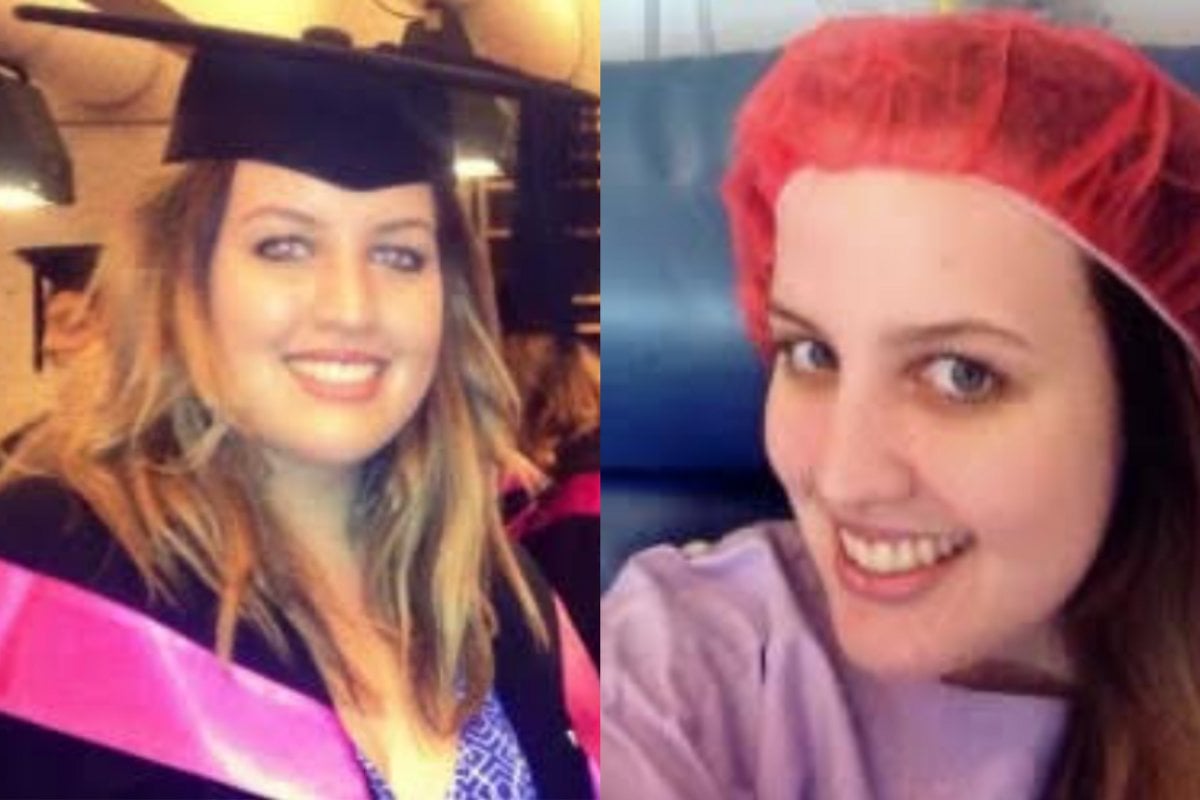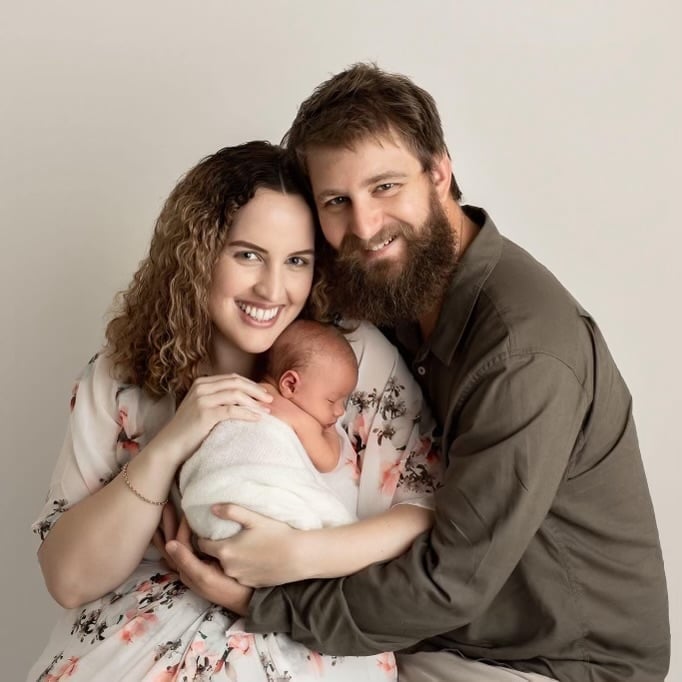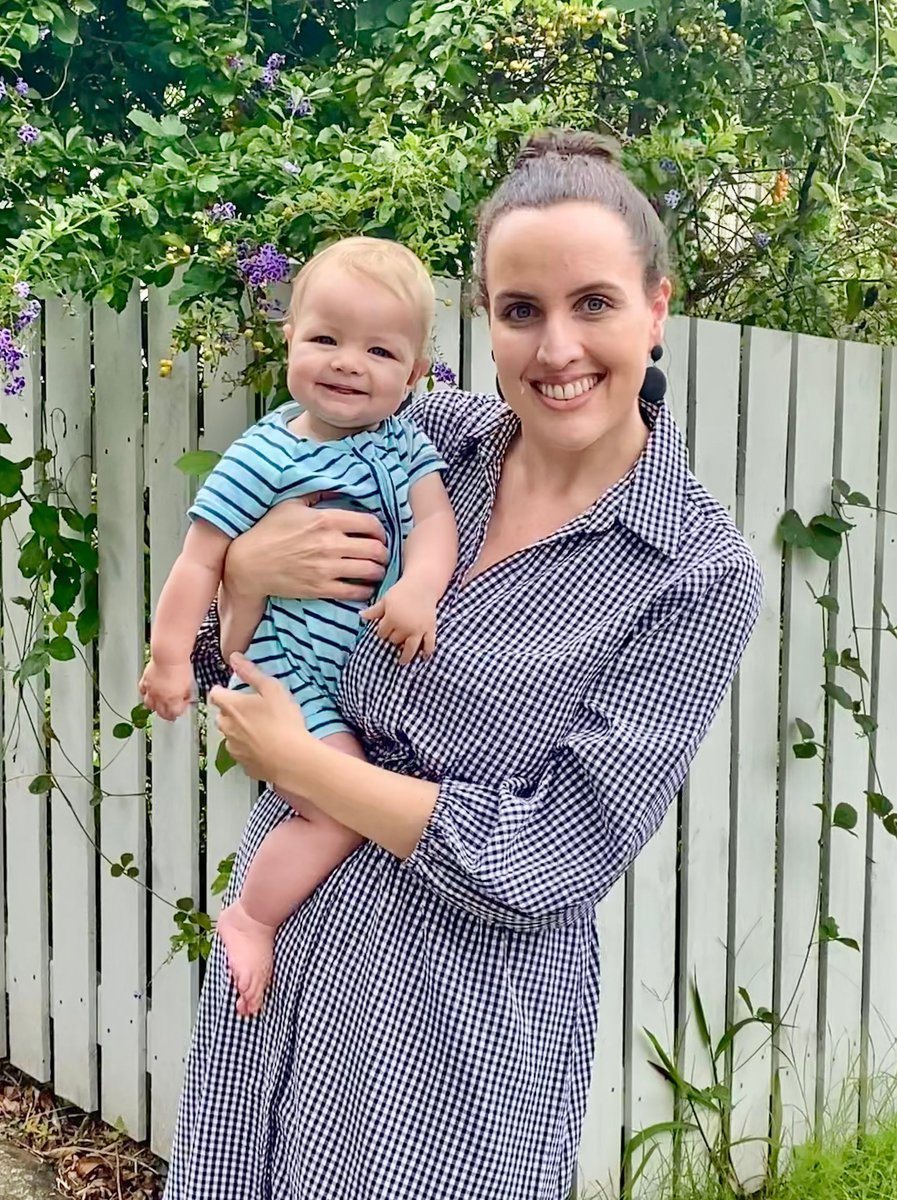
In 2012, Stephanie Kay was in the “prime” of her life.
“I was in my last year of uni in Brisbane, I’d been to Europe, I’d just celebrated my 21st birthday, and I was really on the cusp of going into this next new exciting phase of my life,” she told Mamamia.
Then the news hit.
“I was in the computer lab at uni with one of my friends, trying to finish an assignment, when I got the call that it was cancerous from the biopsy they'd done during the scope of my bowel,” she said.
Watch: The facts on bowel cancer. Post continues after video.
“I think there was a lot of disbelief because I was someone who had a very clear path of the life that I wanted, as you do when you're 21. Cancer was not even a consideration. I didn’t even know any other young person with cancer.”
Let alone bowel cancer.
“There's absolutely a stereotype about bowel cancer being an 'older person's disease', perhaps even an older man's disease,” Stephanie said. “And I think that that's a really dangerous stereotype.



